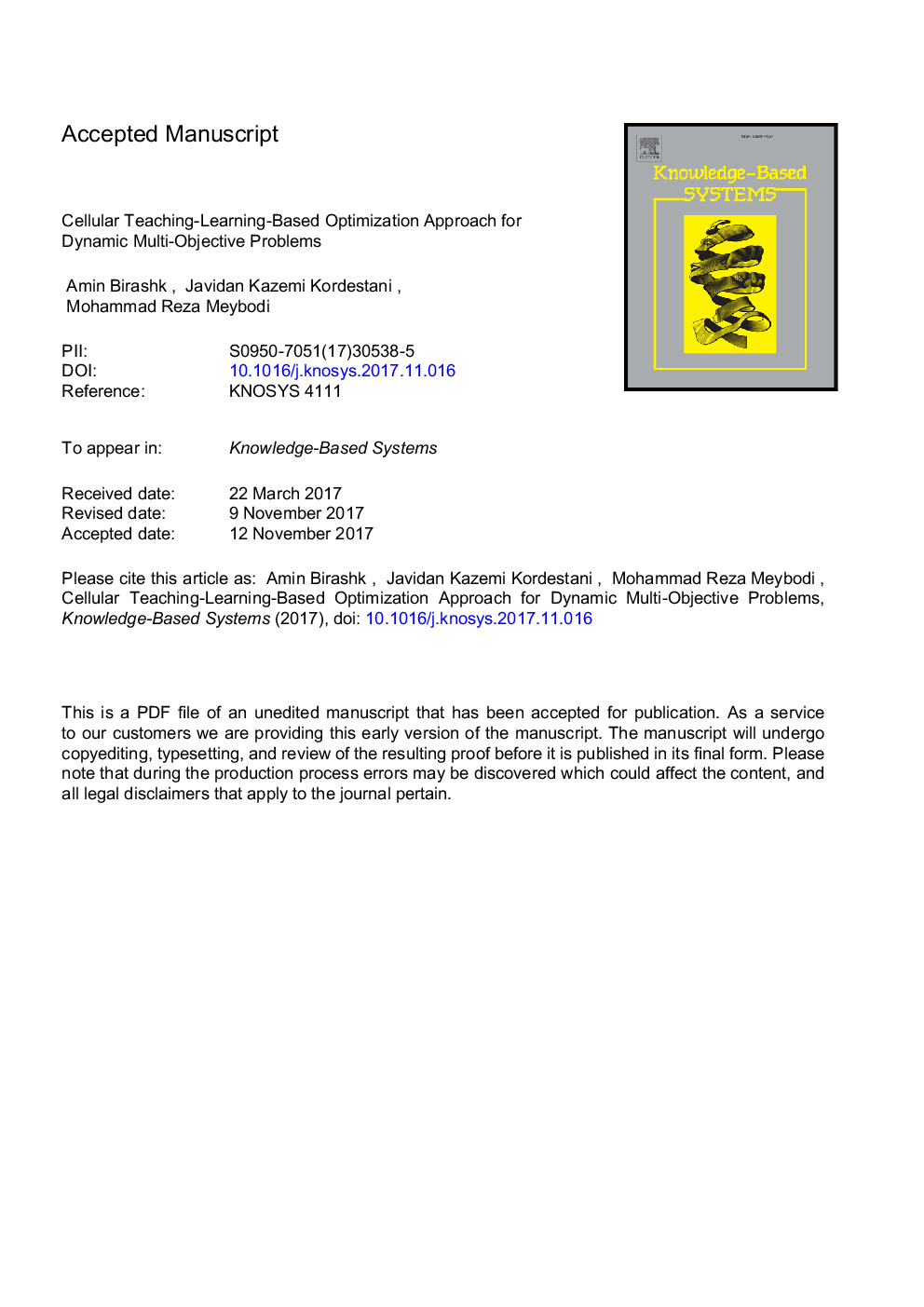| Article ID | Journal | Published Year | Pages | File Type |
|---|---|---|---|---|
| 6861925 | Knowledge-Based Systems | 2018 | 66 Pages |
Abstract
Many real-world optimization problems involve several conflicting objectives that must be optimized simultaneously. Furthermore, most optimization problems have a dynamic structure and change over time. In addition to trying to establish trade-offs among conflicting objectives and explore a diverse set of solutions on a Pareto-optimal front, a dynamic multi-objective optimization (DMOO) algorithm tries to detect changes and track them, using the knowledge of prior environments to converge to the new Pareto-optimal front more quickly. In this paper, a cellular automata-based approach is first proposed for managing and evaluating solutions during the optimization process. Then, using the above approach and the teaching-learning-based optimization algorithm, two new algorithms are introduced for DMOO problems. The first algorithm works to optimize the objectives all at once in a multi-objective manner, while the second algorithm uses the vector evaluated technique to evolve solutions in collaborative single-objective optimization units, and then analyzes them from a multi-objective perspective. These algorithms have been evaluated and compared with some other DMOO algorithms for some standard benchmark problems. The results indicate their superiority in many of the experiments.
Keywords
Related Topics
Physical Sciences and Engineering
Computer Science
Artificial Intelligence
Authors
Amin Birashk, Javidan Kazemi Kordestani, Mohammad Reza Meybodi,
